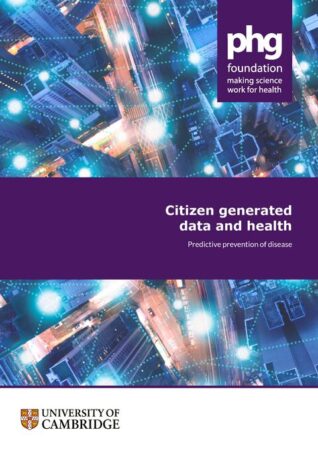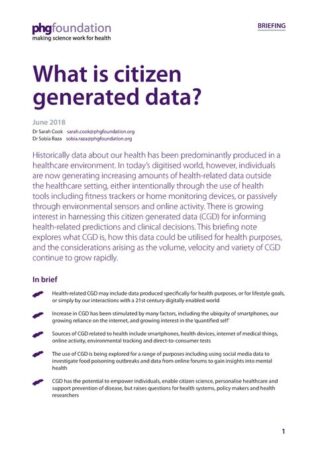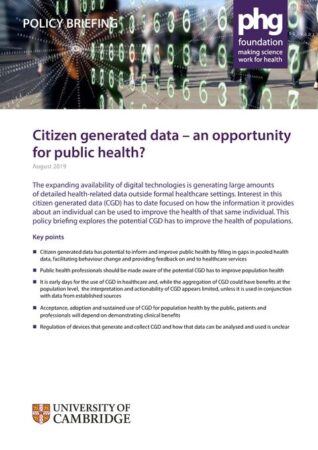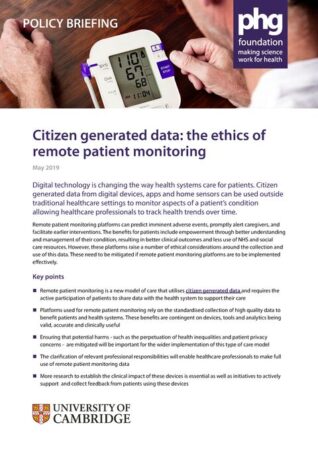Home Publications Reports Citizen generated data and health: predictive prevention of disease
Citizen generated data in the predictive prevention of disease
Citizen generated data (CGD) is a collective term for the data generated by people outside health systems. It can provide insights into health and wellbeing which could contribute to prediction and prevention of disease, or at least limiting its impact.
The PHG Foundation’s new report, which draws on research and expert insights, examines in detail the prospects for using citizen generated data for health, and specifically to support predictive prevention of disease – an approach that uses science and technology to offer a more personalised assessment of risk and targeted interventions to keep people well, for longer. This is widely acknowledged to be vital for a sustainable NHS.
Policy briefings
What is citizen generated data?
This short policy briefing sets out the challenges of defining this potentially rich, but possibly limitless, source of health-related data. Published 2018
Citizen generated data – an opportunity for public health?
This policy briefing explores the potential citizen generated data has to improve the health of populations. Published 2019
The ethics of remote patient monitoring
Remote patient monitoring platforms offer many benefits for patients including empowerment through better understanding and management of their condition, resulting in better clinical outcomes and less use of NHS and social care resources. However, these platforms raise ethical considerations around the collection and use of this data. Published 2019




